The First 20 Hours. How to Learn Anything Fast
|
|

The First 20 Hours was written with an intention to enlighten people on how to rapidly acquire a skill. The key to learning any skill is to have a clear definition of what you think will be “good enough” and focus on the small parts that make that “good enough” skill. The author, Josh Kaufman, tailored the three major areas of this book towards principles to learn effectively. He organizes them in three key components:
1- Rapid Skill Acquisition
2- Effective learning
3- Effectiveness of the approach
RAPID ACQUISITION SKILL
Rapid skill acquisition is a way of breaking down a particular skill into the smallest pieces possible for easier processing then identifying which of those pieces are most important and deliberately practicing those elements first. There are four steps in RapidSkill Acquisition process.
First you need to deconstruct the skill into the smallest possible subskills; the second step is to learn enough about each subskill in order to practice intelligently and self-correct during practice; the third step is to remove any mental, emotional and physical barriers that may get in the way of practice; and lastly, practice the most important sub-skills for at least twenty hours.
EFFECTIVE LEARNING
Any time you start practicing something new, your skills will naturally improve in a very short period of time. The key is to start practicing as soon as possible. Not thinking about practicing or worrying about practicing, but actually practicing. By just simply practicing, the skill set will start escalating. To guarantee the process of practicing is effective, take into consideration the following:
1. Identify mental models and mental hooks.
2. Talk to practitioners to set expectations.
3. Eliminate distractions in your environment.
4. Use spaced repetition and reinforcement for memorization.
5. Create scaffolds and checklists.
6. Make and test predictions.
7. Honor your biology.
EFFECTIVENESS OF THE APPROACH
Not only does Josh talk the talk, but he also walks the walk when it comes to the principles guiding Rapid Skill Acquisition and effective learning. To put them to the test he chose six skills he was interested in learning,
• Yoga
• Programming
• Touch typing with a Colemak keyboard layout
• Playing Go
• Windsurfing
• Ukulele
Josh puts 20 hours into practicing each skill and he didn’t withhold the feedback. A more significant part of the book is devoted to his experience in these skills. Briefly, programming which is one of his “wants to acquire” skills was a big hit. He wanted to create a functioning web application. But guess what, He did not spend the precious hours stuck in textbooks, NO, he rather focused on basic elements of creating a program and then applied a “build – test – fix” approach to honing it into a working prototype. He utilized the full 20 hours, 10 of which were spent on research and the remaining 10 on the programming. In the end, he had a couple of working software solutions. It was a breakthrough.
On a final note, the only time you can choose to practice is today. Not tomorrow. Not next week. Not next month or next year. Today. So, to all my life learners and self-taught folks… when you wake up in the morning, you have a choice and this book helps you to make the right choice. Stop procrastinating and start learning. It will take just 20 hours.
THE BIG THREE – KEY POINTS
Key point #1 – Always make the next skill you’re going to learn the one you’re most excited about.
Key point #2 – Think about emotional and real-life obstacles beforehand.
Key point #3- Initially, focus on quantity over quality.
One Last Thing
“Anyone who has never made a mistake has never tried anything new.”
― Albert Einstein

Leave a Reply
Want to join the discussion?Feel free to contribute!